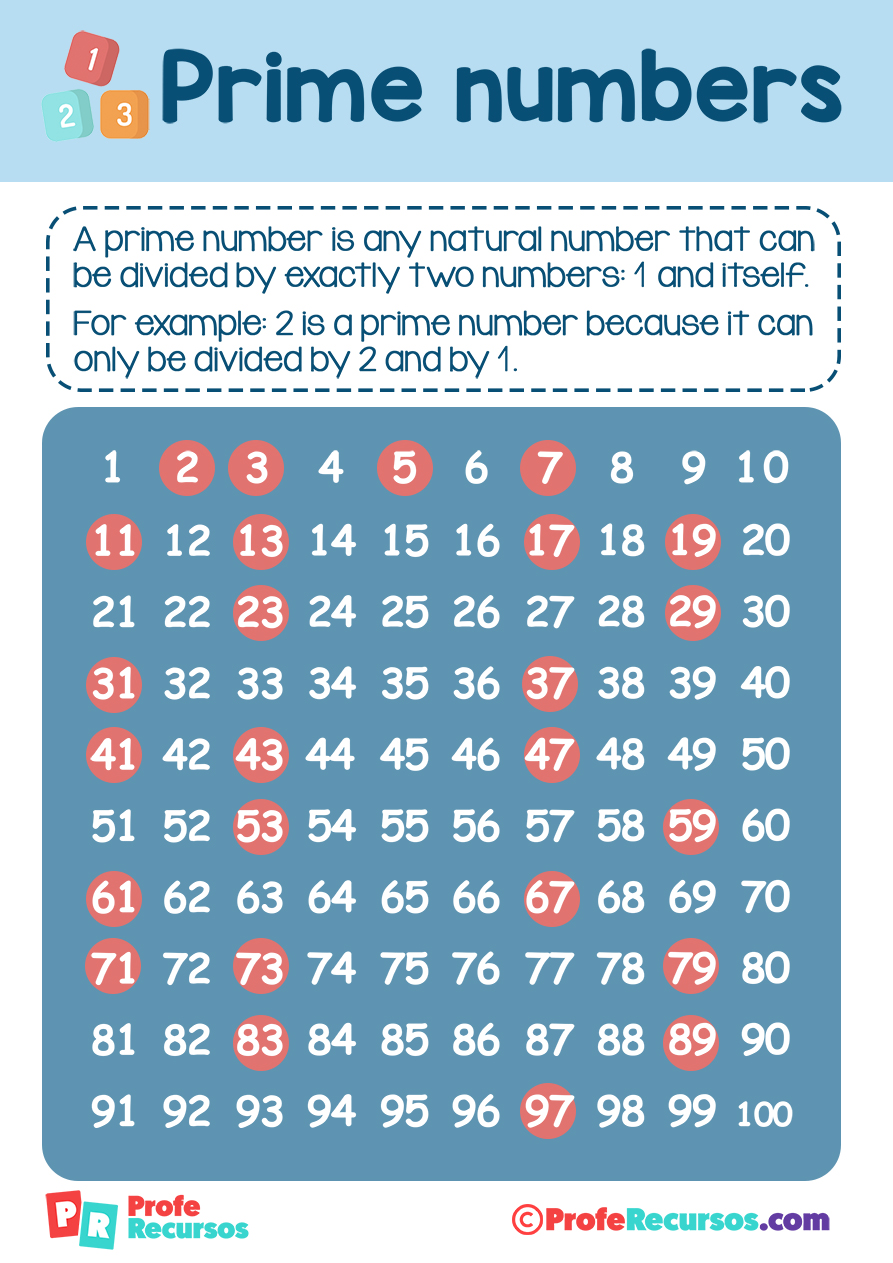Prime numbers are those natural integer numbers that are divided exactly only by 1 and themselves. Among the first ten numbers, we have the following prime numbers: 2, 3, 5, and 7.
Those numbers divisible by another number, besides 1 and itself, are known as composite numbers. For example, 10 is a composite number since it is divisible by 2 and 5, in addition to 1 and 10. 9 is divisible by 3: 3×3=9.
Prime numbers are greater than 1 and are infinite. That is why 0 and 1 are not considered prime.

How to know if a number is prime
To determine if a number is prime, divide it by all the prime numbers less than it. If an inexact division is reached in which the quotient is equal to or less than the divisor, the number is prime.
We can use divisibility rules to determine if a number is prime. When any number is divisible by other than 1 and itself, it is no longer prime.

